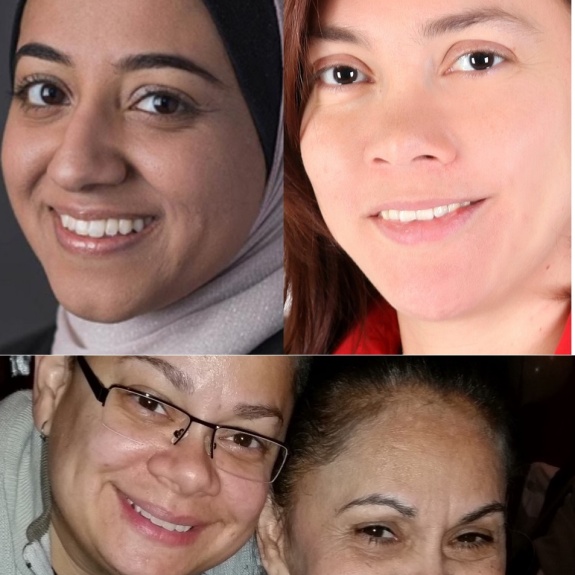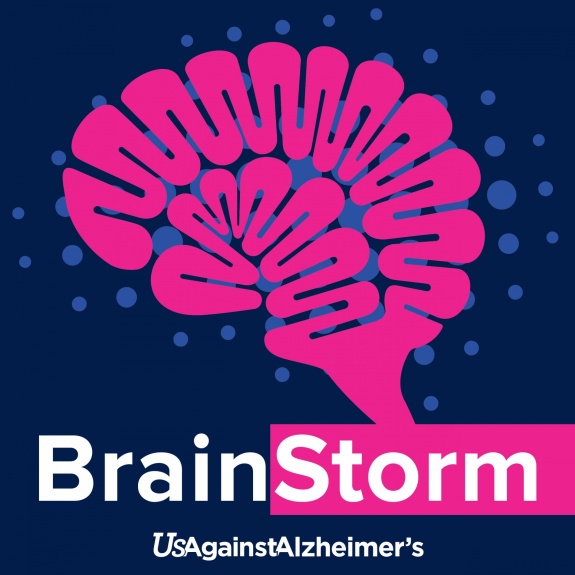Subscribe on your favorite player
Listen on Apple Podcasts Listen on Spotify Listen on Stitcher Listen on Google PodcastsThe Latest & Best in Alzheimer's Research - Daisy Duarte, Dr. Tabassum Majid, Dr. Yakeel Quiroz

About This Episode
In July, at the world’s largest gathering of Alzheimer’s researchers, the 2018 Alzheimer’s Association International Conference (AAIC), thousands of researchers gathered to discuss the latest and best in Alzheimer’s research. What does the latest research have to say about disparities in Alzheimer’s and dementia impacting diverse communities? What were the most relevant developments for those living with Alzheimer’s and their care partners?
For our August Alzheimer’s Talk, two internationally renowned researchers—Tabassum Majid, PhD, of the Integrace Institute and Yakeel Quiroz, PhD, of Harvard Medical School/Massachusetts General Hospital—joined clinical trial participant Daisy Duarte, a nationally recognized advocate and care partner for her mother with Alzheimer’s. All shared their key takeaways from the conference.
Click the "Play" button under the image at left to hear the full episode.
“For me, a real benefit of going to a conference like AAIC is the reminder that you’re not the only one,” said Duarte. “You see so many other families and hear their stories of life with this disease.”
Our three guests noted the following as among the conference highlights:
- Promising results in clearing amyloid from the brain and slowing cognitive decline
- Progress in identifying biomarkers to detect the presence of Alzheimer’s, including a possible blood test and a potential eye test (examining the retina for thinning)
- Dr. Quiroz commented that it takes time for more accurate testing for Alzheimer’s, and state-of-the-art testing is not always available nearby. She asked, “What if people could do accurate testing at home, say with an app?”
- Benefit of lowering blood pressure: 20% reduction in later risk of Mild Cognitive Impairment
- This finding has potential to reduce some of the disparate impact of dementia on communities of color, among whom cardiovascular risk factors are often more prevalent.
- The first-ever global discussion of diversity and disparities in Alzheimer’s research, which highlighted the need for more diverse clinical trial participants
- More sensitive measures of dementia and better ways to track the disease process
- Multimodal, personalized interventions: drug treatment plus lifestyle changes (increased exercise, better diet, social and intellectual engagement, stress management)
- Studies showed five times the impact from lifestyle interventions as from current Alzheimer’s/dementia drugs
- Innovations in Alzheimer’s care—in training, technology, person-centered care, patient-centered outcomes
- Culturally tailored research to reach a broader segment of the population affected by dementia
Responding to a listener question about progress in addressing the rural-urban divide in access to Alzheimer’s research, Dr. Majid observed: “Alzheimer’s research definitely has geographic disparities—in proximity to major research centers—and disparities in who participates by their disease-state (early or later-stage Alzheimer’s). To help bridge the urban-rural divide in access to and participation in Alzheimer’s research, it may take a range of things—a hub-and-spoke approach, telemedicine, and local partners who can help connect patients to rural research centers.”
Describing a vision for the path ahead, AlzTalks moderator Jason Resendez, who leads UsAgainstAlzheimer’s LatinosAgainstAlzheimer’s network and also attended the conference, remarked, “Clinical trial referrals are part of the standard of care in cancer. We need that to be the case in neurology as well.”
This Alzheimer’s Talk was supported in part by funding from the Patient-Centered Outcomes Research Institute (PCORI).
